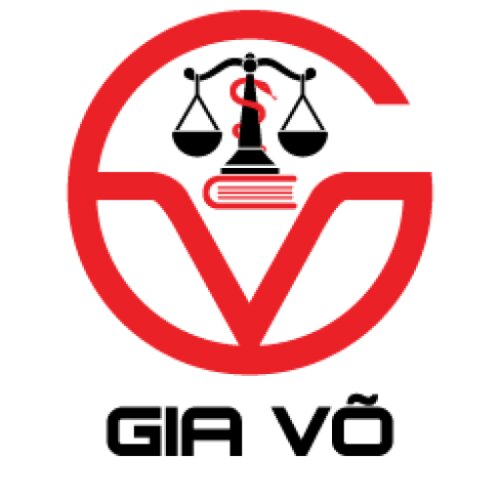Best Collaborative Law Lawyers in Hanoi
Share your needs with us, get contacted by law firms.
Free. Takes 2 min.
Free Guide to Hiring a Family Lawyer
List of the best lawyers in Hanoi, Vietnam
About Collaborative Law in Hanoi, Vietnam:
Collaborative Law in Hanoi, Vietnam is a legal process where parties work together outside of the courtroom to resolve disputes in a cooperative and amicable manner. The process involves each party having their independent legal advisor to provide guidance and advice throughout the negotiations.
Why You May Need a Lawyer:
You may need a lawyer in Collaborative Law in Hanoi, Vietnam in situations such as divorce, child custody disputes, inheritance conflicts, or business partnership disagreements. A lawyer can help you navigate the legal process, protect your rights, and ensure that your interests are adequately represented.
Local Laws Overview:
In Hanoi, Vietnam, Collaborative Law is recognized and regulated by the government to provide an alternative dispute resolution method for parties seeking to avoid the adversarial nature of traditional litigation. Parties involved in Collaborative Law are required to act in good faith and commit to finding mutually beneficial solutions to their disputes.
Frequently Asked Questions:
1. What are the benefits of Collaborative Law over traditional litigation?
Collaborative Law offers parties more control over the outcome, privacy, and the ability to maintain positive relationships. It is usually faster and more cost-effective than going to court.
2. How is the Collaborative Law process initiated in Hanoi, Vietnam?
The process begins with both parties signing a participation agreement committing to work together towards a resolution without litigation. Each party then hires their collaborative lawyer, and negotiations begin.
3. Can Collaborative Law be used in family law situations in Hanoi, Vietnam?
Yes, Collaborative Law can be used in family law cases such as divorce, child custody, and property division. It allows parties to work together to reach agreements that are in the best interests of all involved.
4. Is the outcome of Collaborative Law legally binding in Hanoi, Vietnam?
Yes, the agreements reached through Collaborative Law in Hanoi, Vietnam are legally binding once approved by the court. This provides certainty and enforceability to the agreements reached.
5. What happens if the parties cannot reach an agreement in Collaborative Law?
If the parties are unable to reach an agreement through Collaborative Law, they may choose to pursue other legal options such as litigation or mediation to resolve their disputes.
6. Can I switch from Collaborative Law to traditional litigation in Hanoi, Vietnam?
Yes, parties can choose to discontinue the Collaborative Law process and pursue traditional litigation if they are unable to reach a resolution through collaboration. However, this may require new legal representation.
7. How long does the Collaborative Law process typically take in Hanoi, Vietnam?
The timeline for Collaborative Law varies depending on the complexity of the issues involved and the willingness of the parties to cooperate. It can range from a few months to over a year in some cases.
8. Are the proceedings in Collaborative Law confidential in Hanoi, Vietnam?
Yes, Collaborative Law proceedings are confidential in Hanoi, Vietnam. This allows parties to discuss sensitive information freely without fear of it being used against them in court.
9. How much does Collaborative Law cost in Hanoi, Vietnam?
The cost of Collaborative Law in Hanoi, Vietnam varies depending on the complexity of the case and the amount of time involved. It is generally more cost-effective than traditional litigation, but costs can add up for multiple sessions and legal representation.
10. Can I use Collaborative Law for business disputes in Hanoi, Vietnam?
Yes, Collaborative Law can be used for business disputes in Hanoi, Vietnam. It offers a non-adversarial approach to resolving conflicts between business partners, shareholders, or other parties involved in commercial transactions.
Additional Resources:
If you are looking for more information on Collaborative Law in Hanoi, Vietnam, you can reach out to the Vietnam Collaborative Law Association or the Ministry of Justice for guidance and support.
Next Steps:
If you require legal assistance in Collaborative Law in Hanoi, Vietnam, the first step is to consult with a qualified collaborative lawyer who can evaluate your case and advise you on the best course of action. It is essential to act promptly to protect your rights and interests in the collaborative process.
Lawzana helps you find the best lawyers and law firms in Hanoi through a curated and pre-screened list of qualified legal professionals. Our platform offers rankings and detailed profiles of attorneys and law firms, allowing you to compare based on practice areas, including Collaborative Law, experience, and client feedback.
Each profile includes a description of the firm's areas of practice, client reviews, team members and partners, year of establishment, spoken languages, office locations, contact information, social media presence, and any published articles or resources. Most firms on our platform speak English and are experienced in both local and international legal matters.
Get a quote from top-rated law firms in Hanoi, Vietnam — quickly, securely, and without unnecessary hassle.
Disclaimer:
The information provided on this page is for general informational purposes only and does not constitute legal advice. While we strive to ensure the accuracy and relevance of the content, legal information may change over time, and interpretations of the law can vary. You should always consult with a qualified legal professional for advice specific to your situation.
We disclaim all liability for actions taken or not taken based on the content of this page. If you believe any information is incorrect or outdated, please contact us, and we will review and update it where appropriate.
















